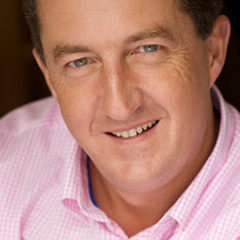By Thomas Power

Thomas Power
Most businesses spend a lot of time concentrating on getting their message across through press relations. Yet, you, like most others, now consume information from a much wider set of sources. In the digital world, should you be expending energy finding your audience or is your audience finding you? Do you need to depend on a controlling central body to get your message out?
As our information sources change, so should the ways we manage our reputation. It was easier to manage when it was a choice between BBC and ITV for Television news, papers like the Times, FT and Economist in print and Radio 4 with, perhaps some 5 live or Local Radio? Things are changing and have been for a few years now.
Today you probably still consume the ‘old’ media but at least some of the time that will be on ipad or other tablet or on your mobile phone. In addition, you probably also find your information in online-only newspapers and article sites like the Huffington Post, from key bloggers in your sector, from internet radio which is often specialist. Video is everywhere. Social networks like Google plus and Linkedin have become news sources whilst Twitter signposts you to yet more news sources. The people around you also know what you want to know, so don’t neglect your face to face networks. You need to be putting all of those options to use proactively to build and manage your reputation.
I’ve been observing and commenting on a major shift for some time. The move from CSC type businesses to ORS. Let me explain –
- CSC stands for closed, selective and controlling. Most big corporations have been this way though some are changing and most will need to in time. The press release approach came about because there was limited access to printed and other media space. You have to impress and convince the controllers in order to get your message out.
- ORS on the other hand stands for open, random, supportive. This is the world of new media, sharing, blogging, tweeting, linking, liking and plussing. This involves building relationships, some strong and others weak, with others online, critically without being selective. There are no limits to space and to the potential for distribution. Items go viral. They find people randomly and lead to serendipitous results.
Now I recognise that this change will not be easy for some. Closed cultures have worked in the past and it is easy to keep on doing what you’ve always done. Changing involves risk and Boards can be very risk-averse, especially in larger businesses. Some, mostly smaller, more agile, businesses are ORS already. Others are open or random or supportive or even two of the three. Achieving all of the elements all of the time is much harder.
The consequences of a move to ORS, which will take the next 5 to 10 years to deeply penetrate the market, will be that you allow your information to find a route and that you share much more information not just what you imagine will be to your benefit. As you build your weak and strong relationships, you will find that others will advocate you and that things will happen that are unexpected. You will need to be able to embrace them.
To be fully open, to accept all data from all sources and then filter it thus being open to random connections, to be supportive to those around you even though you want to do things for yourself and feel you need the support. These are all going to test business people as they become more widespread. To be closed in a world that is open, however, will not be a winning strategy.
The digital world is making hierarchies a thing of the past. The world will be a networked one and the business world will thrive on networks. Now is a good time to begin your journey towards being a fully ORS network player.
Thomas Power is a Professional Speaker and full time Non-Executive Director sitting on eight Boards. His focus is on aggregating and sharing cutting edge knowledge of the patterns, shapes and trends (memes) emerging from Silicon Valley. Accidental discoverer of the concept of Open Random Supportive (ORS) thinking in 2009 Thomas acts as a digital companion (a sherpa or porter) to corporate executives and entrepreneurs helping them navigate “their” web minefield. www.linkedin.com/in/
For more information from the Academy for Chief Executives, please follow us on Twitter –@academyceo. You can also find out more about us at www.chiefexecutive.com.